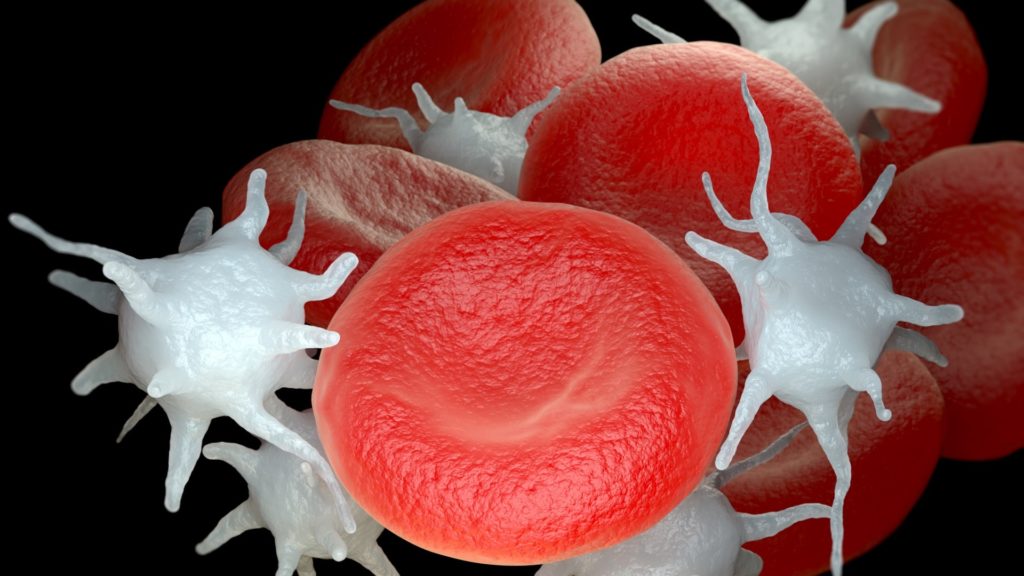Learn about some natural ways to prevent blood clots
While some blood clots are good, like when you get a scrap that scabs over and heals, blood clots can also be detrimental to your health if they are forming in your body when not needed or if they are moving around in your bloodstream.
In this post, we’ll discuss what blood clots are, the risk factors for blood clots, as well as some natural blood clot remedies and tips as to how to reduce blood clotting naturally.
What are blood clots?
Blood clots are formations of solidified blood that can occur in the body for a number of reasons. They often form in response to an injury as a means to stop the bleeding, but they can also form internally without any injury.
These internal blood clots can grow, restricting blood flow and increasing pressure, and they can even break off and travel throughout your body, creating a life-threatening situation such as a stroke or pulmonary embolism.
Symptoms of blood clots include elevated heart rate, lightheadedness, blurry or changed vision, swelling, redness, chest pains, difficulty breathing, and a weak feeling in your arms, legs, or face.
If you experience symptoms of a blood clot, you should see a doctor immediately.
Risk factors of blood clots
There are a number of risk factors for developing blood clots, some of which include:
- Having surgery, especially if you are having hip or knee replacement surgery
- Being pregnant or recently giving birth
- Smoking
- Being obese or overweight
- Having a family history of blood clots
- Taking hormone therapy or birth control pills
- Being immobile for long periods of time, such as after an injury or surgery
- Having certain medical conditions, such as cancer, heart disease, or stroke
How to naturally prevent blood clots
While there are a number of medical treatments for blood clots, there are also some ways to naturally reduce blood clots. Some natural remedies for blood clots include:
- Eating a healthy diet that is rich in fruits and vegetables: Animal fats are inflammatory and can negatively impact cardiovascular health.
- Exercising regularly: Exercising gets your blood pumping faster, which helps with circulation.
- Staying hydrated: Dehydration results in thicker blood, which clots easier.
- Losing weight: Being overweight or obese means your body has to deal with increased pressure within the veins. By losing weight, the pressure decreases, allowing blood to flow easier.
- Quitting smoking: Apart from numerous other health risks posed by smoking, smokers also are at a higher risk of blood clots.
- Avoiding alcohol: Drinking more than two servings of alcohol daily increases the risk of blood clot development.
- Wearing loose-fitting clothing: Tight clothing restricts blood flow, which can lead to blood clots.
- Elevating your legs when possible: This makes it easier for the blood to get back to your heart without straining the veins in your legs.
While some blood clots are necessary for healing, others can be life-threatening. Knowing the symptoms and risk factors of blood clots is important, as is knowing how to prevent them naturally. By following the tips above, you can help reduce your risk of developing harmful blood clots.
San Diego Vein Specialists
If you believe you may be at risk for blood clots or are concerned about your vein health, it’s worth seeing a vein specialist for a consultation.
If you suffer from varicose veins or spider veins, we recommend considering having a procedure done to cure the problem altogether by getting rid of the veins. If you are considering such a procedure, contact Kafri Wellness Clinic to schedule an evaluation and get more information.
At Kafri Wellness Clinic, we have over 25+ years of experience working with patients to address vein issues. We also take into consideration a cardiovascular approach to your treatment to give you as much insight into your health as possible.
If you’d like to schedule a consultation to learn how we can help you, please contact us today!




